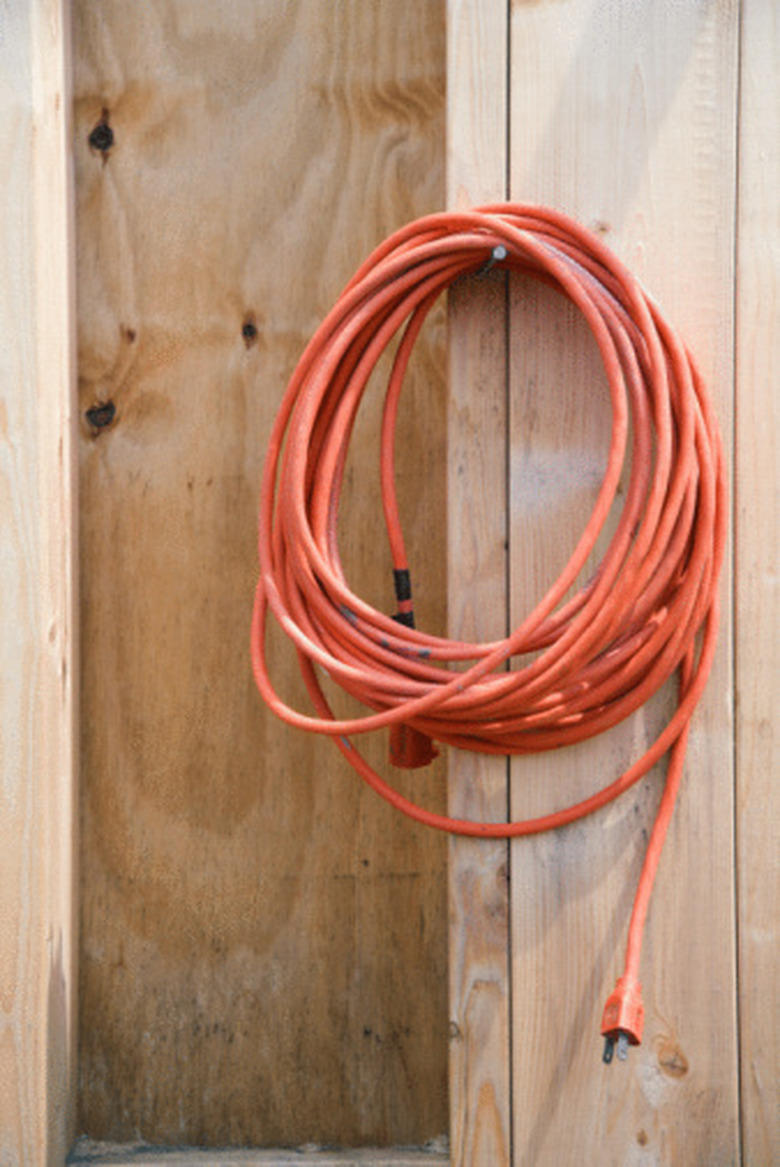Does An Extension Cord Reduce The Appliance Voltage?
Anything that resists the flow of electricity causes voltage to drop. How much the voltage drops and whether the voltage drop is a concern is a different matter. Even a very short wire will cause an insignificant voltage. Whether an extension cord causes a noticeable or significant voltage drop depends on the length and gauge of the wire and the appliance plugged into it.
Voltage Drop
Voltage Drop
Any resistance to current flow causes a voltage drop and all wires have resistance. Over short distances, the voltage drop is negligible and unnoticeable. However, as distance increases, voltage drop increases as well. Voltage drop can be mitigated to an extent by using heavier gauge wires but that does not solve all problems.
How much the voltage will drop over the length of the extension cord is an important consideration for safe and efficient appliance operation. For example, 50 feet of 14-gauge wire will cause a voltage drop of about 3 percent if the supplied voltage is 120 volts and the wire carries no more than 12 amps. As the load increases, so will the voltage drop.
Concerns
Concerns
In the United States electric utilities supply current to homes through two wires at 120 volts volts in each wire. This voltage can vary from a low of 110 volts up to 125 volts. The main concern is when the voltage drops too far below 110 volts because as voltage decreases, more current flows to make up the difference and this causes wires to heat up and appliances to run hotter.
If you're starting out at 120 volts and the voltage drops 3 percent, it won't matter to an appliance or light bulb that the voltage is now 116 volts.
However, if the starting voltage at the receptacle is 110 volts and you plug in 100 foot, 14-gauge extension cord, the voltage will drop 6 percent to 103 volts. Motors run hotter and lights dim noticeably.
Using Extension Cords
Using Extension Cords
Extension cords are safe and won't cause problematic voltage drops if used correctly. Light duty extension cords should be used for small loads such as lamps or a radio. Don't use extension cords that are longer than necessary.
Large appliances need heavy gauge wires. Appliance extension cords are made just for this purpose. A 6-foot appliance extension cord will not cause a problematic voltage drop if it meets the current requirements of the device. For example, if a window air conditioner uses 15 amps, a 20 amp extension cord would be sufficient. The voltage will drop slightly, but not noticeably or significantly.
Appliances and Extension Cords
Appliances and Extension Cords
The best practice is don't use an extension cord if you don't have to. Since this isn't always practical, follow these guidelines for using extension cords with appliances for safety and to minimize voltage drop.
Use an extension cords rated for the amount of current the appliance uses.
Use the shortest extension cord possible.
Route extension cords safely and never place them under carpets or where they might be damaged.
References
- "Code Check Electrical"; Redwood Kardon, Et al.; 2002
- "Wiring Simplified, 40th Edition"; Herbert P. Richter, et al.; 2002
